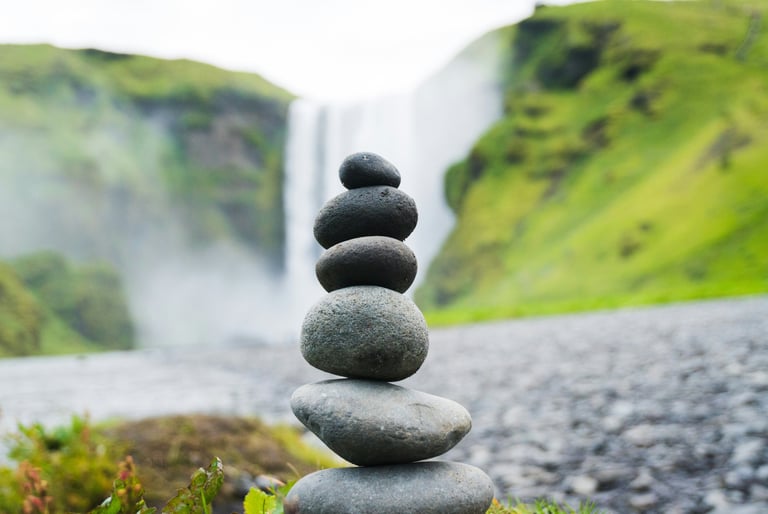The Unseen Balance: A Year of Meditation (Week 37)
In the dance between love and work, exhaustion and ease, comes a week of mindful lessons—written from the meditation cushion.
9/14/20252 min read


This week unfolded as a journey—from exhaustion and unexpected setbacks to moments of clarity and gentle insight. My body often signaled before my mind could catch up: a racing heartbeat, a low fever, a sudden emotional collapse. Each time, meditation became a doorway back to myself, revealing deeper layers beneath the surface.
During one session, while resting with a slight fever, I felt an unexpected sense of tenderness. As I turned inward, it was as if a loved one were quietly nearby, watching over me. That feeling—“someone has my back”—brought instant calm. Even amid outer chaos, that stillness was enough to make my heart feel full again.
Another morning, I meditated after only three hours of sleep. My body was heavy, my mind drifting in and out of sleep. Yet in that blurred space, I realized: even the breath can be an anchor. It didn’t erase the fatigue, but it taught me that awareness doesn’t require perfect conditions—it can arise anywhere.
I began to see that decision-making is less about logic and more a reflection of mental balance. I used to run without pause, afraid to stop. But in stillness, I understood: when the heart rests in love, there’s no need to run.
Pragmatism and idealism, I saw, aren’t opposites—their value depends on the intention behind them. Used for self-gain, pragmatism becomes a cage; in service of a higher vision, it becomes a bridge.
I also felt the danger of getting lost in thinking—like a child absorbed in a game. Ideas bring joy, but without grounding, they lose substance. Before sharing anything publicly, I ask: Is this truly meaningful? Is my intention clear?
Then came a breakdown: a project failed as my body reached its limit. Tears released pent-up tension—and afterward, I found a focus deeper than ever before. The unknown never moves in a straight line; its meaning often reveals itself later. All we can do is meet it with resilience.
That low fever taught me something else: breakthroughs rarely come gradually. They happen at the edge of our capacity—like the difference between ten hours of meditation and ten minutes. Transformation occurs when we cross a threshold.
Underlying it all was a softer truth: love and work aren’t opposing forces. When love gives meaning to work, and work carries love forward, life takes on a subtle alchemy.
Over the weekend, I wandered into a bookstore. Slowly browsing, I felt a slower rhythm return. The books reminded me: life is transient, and that’s what makes every experience intimate. Lao Tzu’s words echoed: “The sage does not hoard.” To walk lightly, holding the end in mind, doesn’t diminish life—it deepens it. Perhaps the greatest comfort is this: in the vast unfolding of things, there is no real beginning, and no end.
